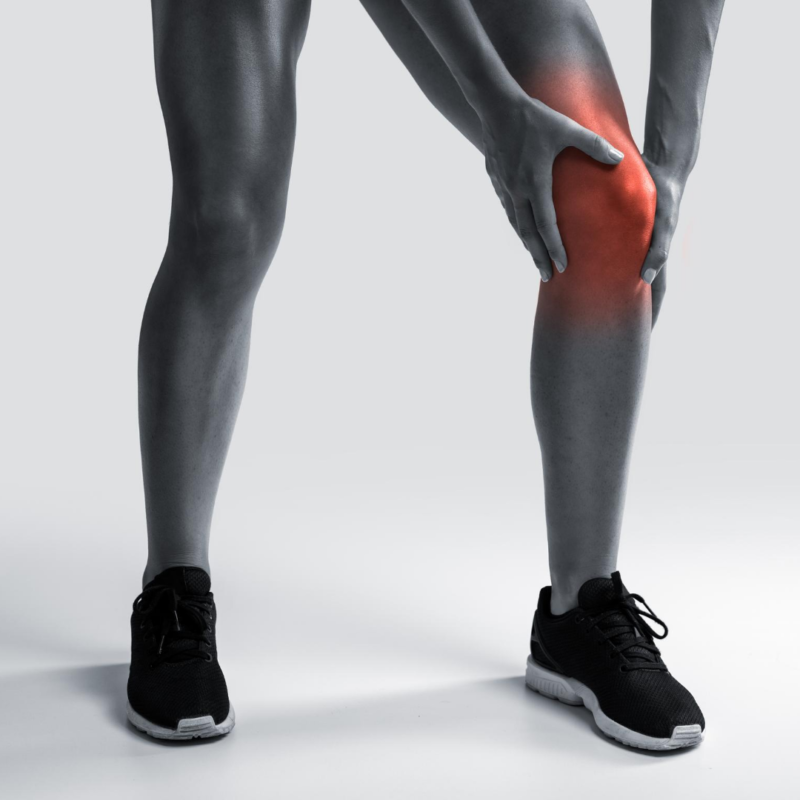
What is Knee Arthroscopy?
If you suffer from knee pain, either from a chronic condition or an injury, you might be able to find relief from knee arthroscopy. This procedure is a type of minimally invasive surgery provided by our orthopedic surgeon in Manhattan at New York Sports Medicine Institute.

What is Knee Arthroscopy?
Knee arthroscopy is a minimally invasive surgical procedure. This means that due to how the surgery is performed, patients will experience less harsh scarring and shorter recovery periods in comparison to traditional open surgical procedures. Additional benefits include:
- Less pain post-procedure
- Less tissue damage
- Lower risk of infection due to small incisions
- Quicker return to work
- Quicker return to sports or other physical activities
- Better cosmetic results
In this type of procedure, our orthopedic surgeon in Manhattan will first determine if you need arthroscopy for diagnosis or treatment, depending on your individual situation and prior medical history.
Does My Condition or Injury Qualify for Knee Arthroscopy?
Although each patient is different and knee arthroscopy can treat a variety of conditions and injuries, it is likely that your knee pain stems from a common knee condition or injury. The conditions and injuries most applicable to knee arthroscopy for diagnosis or treatment are:
- Fractures in any bone of the knee
- Torn cartilage (also known as meniscus) between any of the bones of the knee
- Torn ligaments in the knee (anterior or posterior)
- Swollen joint lining (also known as synovium)
- Cyst removal (most often Baker’s cysts, but others as well)
- Patella repositioning
In addition, knee arthroscopy can also likely treat general joint pain, stiffness, and swelling due to a buildup of fluid. If you’re considering visiting our orthopedic surgeon at NYSMI, keep track of your symptoms and let our surgeon know about any prior diagnosis or knee treatments that you have received in the past.
How Do I Prepare for the Procedure?
After our orthopedic surgeon in Manhattan has either:
- Come to an initial diagnosis for your knee pain and have decided that knee arthroscopy will be your treatment option.
- Decided to use knee arthroscopy to diagnose the source of your knee pain.
It is then time to learn how to prepare for your upcoming procedure. Based on your individual situation and medical history, you will receive specific instructions on how to prepare. However, there are some steps that all patients usually take before having a knee arthroscopy procedure performed:
- Keep track of prescriptions, over-the-counter medications, and vitamins or supplements that you might be taking, and ask your doctor if you need to stop taking these substances before your procedure
- Stop taking ibuprofen and aspirin for several weeks or days before your procedure, at the discretion of your physician
- Do not eat or drink for six to twelve hours prior to your procedure
- In the days before your procedure, fill any prescriptions that our surgeons have provided for you. These are likely pain medications that should be taken immediately after the procedure is performed
What Will Happen During the Procedure?
The following steps outline the process of knee arthroscopy, and provide an idea of what our orthopedic surgeon in Manhattan at NYSMI will do on the day of your surgery:
- You will receive an anesthetic. This will be either local (an injection at the knee only), regional (in which you will be numb from the waist down, usually via injection), general anesthesia (in which you will be put to sleep)
- The surgeon will make a few small incisions into the knee
- The surgeon will pump sterile saltwater or saline into the knee, which makes it easier to see and prevents the need for larger incisions
- Next, the surgeon will insert the arthroscope, a small camera, into the knee to be able to see the joint without having to completely open up the knee, as in traditional surgery. This camera’s feed will be visible on a monitor and allows the surgeon to complete the procedure without being too invasive
- The surgeon will insert small tools into the incisions to treat your injury or condition
- The saltwater or saline will be drained, and the surgeon will stitch up the incisions
How Can Our Orthopedic Surgeon in Manhattan at NYSMI Help?
Our surgeon will help you determine the source of your knee pain and decide whether knee arthroscopy is right for you. We’ll then walk you through the entire process – from preparation, to the details of the procedure, recovery, and post-operative care.
You can request an appointment online, contact us via phone, or come down to our offices to set up an appointment and find out how to put an end to your knee pain today.
